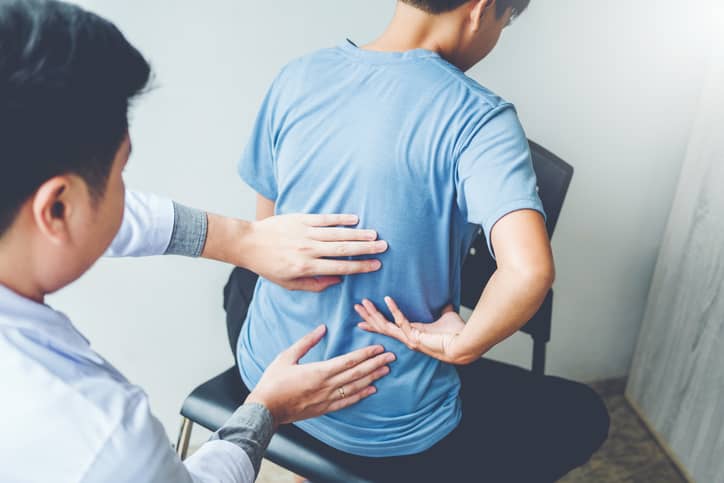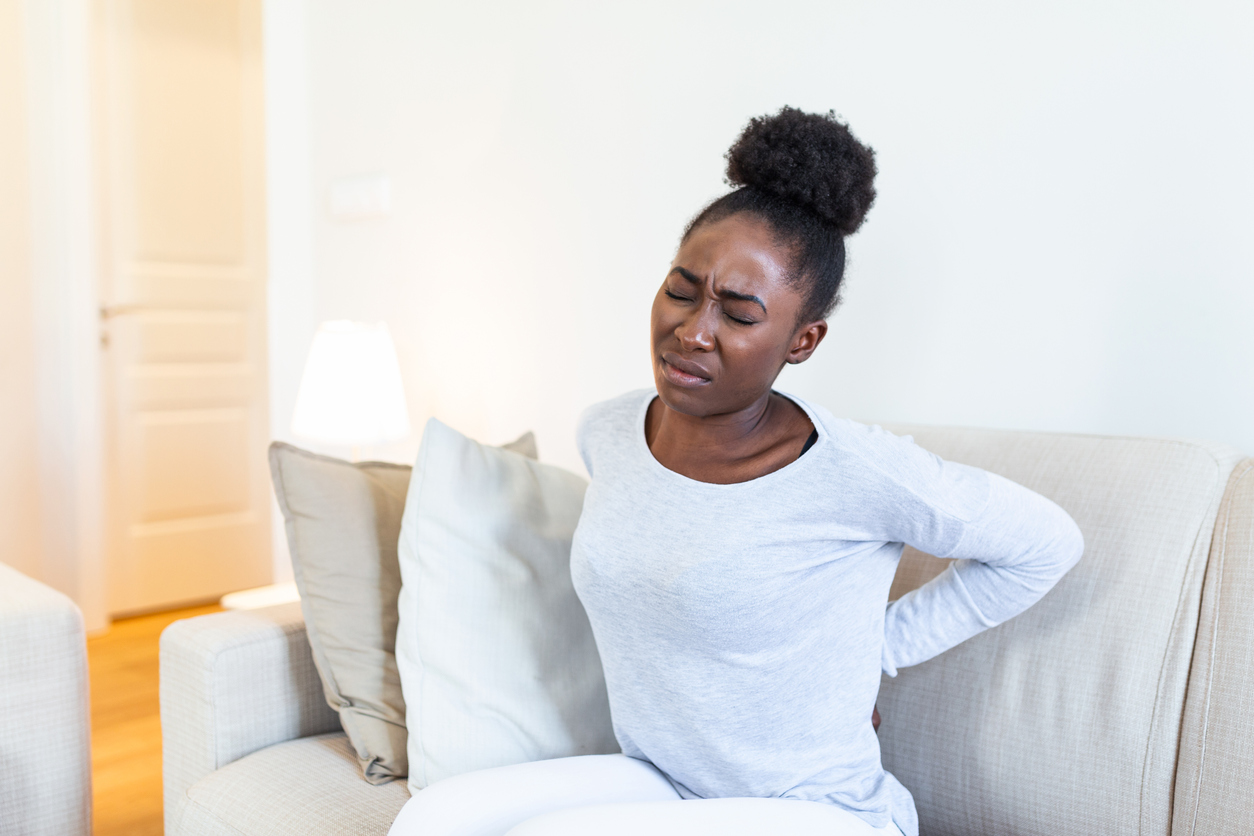Note: Upper back pain when breathing can sometimes be accompanied by fever and difficulty breathing. These can be symptoms of coronavirus (COVID-19).
If you have upper back pain, you may feel it anywhere from the lower part of your neck to the bottom of your ribcage. It may be caused by a number of things, some of which may be minor, like a muscle strain.
But upper back pain can also be a sign of something more serious, especially if it happens when you breathe, so see a doctor or go to hospital as soon as possible if you notice this symptom.
You should also see a doctor right away if you have upper back pain and you:
- notice the pain is coming from the top of your back, between your shoulders,
- recently had a fall or an injury to your back, or the pain started after a serious accident
- lifted something heavy
- have osteoporosis, a weakened immune system or you’ve had cancer
- have a fever, have lost weight without meaning to or you’ve recently had a bacterial infection
- are younger than 20 or older than 50
- have numbness, weakness or tingling in your legs or around your genitals and buttocks
- have trouble controlling when you poo or pee
- have noticed that the pain doesn't get better after resting or is worse at night
- can’t do your daily activities (including sleeping)
- have chest pain, or the pain feels worse when you cough, sneeze or poo
- feel unwell, have a fever or have a swelling in your back
Non-specific back pain
Back pain that’s not caused by a specific disease is known as non-specific back pain. It’s quite common, although it’s more often felt in the lower back. If you're trying to work out what's causing your back pain, it’s worth looking at lifestyle factors, like your posture or if your job involves heavy lifting.

Poor posture can put a strain on the muscles and soft tissues of your back, causing pain over time. Muscle strains and sprains are also a common cause of non-specific back pain. However, if the pain is between your shoulders, rather than in your lower back, you should see a doctor.
Obesity
Being overweight can make back pain and difficulty breathing more likely, as carrying excess weight puts extra pressure on the body. If you’re considering losing weight, try to stick to a healthy diet and keep up with regular exercise. Staying active can help to strengthen your back, too.
Chest infections
If you also have a fever, cough or high temperature, this could be a sign of a chest infection, such as pneumonia or bronchitis. Common symptoms of pneumonia include chest pain that gets worse when breathing, difficulty breathing, and pain in muscles and joints.
Pleurisy
Pleurisy is an inflammation of the thin tissue that lines your lungs and chest cavity (known as the pleura). A sharp, stabbing pain in the chest, which is worse when you breathe in or cough, is one of the main symptoms, and you may also feel pain in your upper back and shoulders. A viral infection is the most common cause, with other causes including chest injuries and bacterial or fungal infections, and lung cancer.
Pulmonary embolism
If your back hurts when you breathe, but you also have shortness of breath, coughing, or feel dizzy and faint, it can be a sign of pulmonary embolism. This is a potentially life-threatening condition, when a blood vessel that carries blood from your heart to your lungs gets blocked – so see a doctor urgently if you have these symptoms.

Heart problems
Heart problems can cause pain in your chest that radiates to the back, neck and shoulders when breathing.
If you have any of the following symptoms along with back pain when breathing, it might be a sign of a heart attack and you should seek urgent medical care:
- chest, arm or shoulder pain
- pain in the back, neck or jaw
- sickness or dizziness
- very strong feeling of anxiety
- shortness of breath
When should I see a doctor about upper back pain when breathing?
If you have upper back pain when breathing you should contact your doctor immediately, as it could be a sign of something serious.
Key points
- if you have upper back pain while breathing, you should seek medical care urgently
- possible causes include muscle strains, being overweight, pulmonary embolism, chest infections, pleurisy and heart problems






